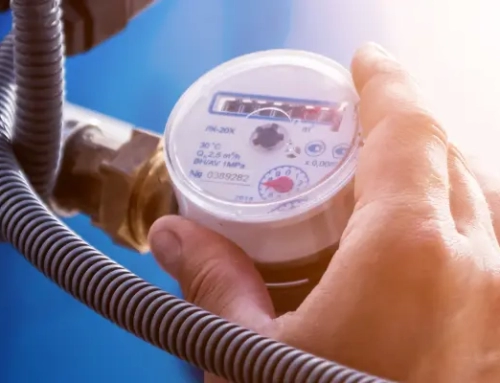Navigating ESOS Phase 4: your guide to compliance & reporting

As the Energy Savings Opportunity Scheme (ESOS) advances into Phase 4, businesses must prepare for new requirements that align with the UK government’s target to achieve net zero by 2050.
This phase brings a heightened focus on both energy efficiency and long-term sustainability goals, emphasising the critical role of businesses in this national effort.
This post explores what ESOS is, whether it applies to your business, the requirements for Phase 4, and how businesses can comply.
What is ESOS?
The Energy Savings Opportunity Scheme (ESOS) is a mandatory energy assessment scheme for large organisations in the UK.
The scheme was introduced to encourage large UK-based businesses to adopt energy-saving measures and reduce their environmental impact, thereby supporting our collective journey towards achieving net zero.
Businesses are required to conduct comprehensive energy audits, looking at the energy used by their buildings, industrial processes and transport along with any energy-efficiency opportunities.
Organisations must produce a thorough audit over a 12-month period every four years.
Does my business need to comply with ESOS Phase 4?
Companies need to comply with ESOS Phase 4 if they meet any of the following criteria:
- Employ 250 people or more
- Have an annual turnover greater than £44 million and an annual balance sheet greater than £38 million
The government are looking at lowering the ESOS balance sheet and turnover thresholds in line with the Streamlined Energy and Carbon Reporting (SECR) thresholds, which would put more organisations in scope.
Certain public sector bodies and non-profit organisations may also fall under the scope of ESOS. Accurately assessing your organisation’s size and financial status is crucial to determine eligibility.
Who doesn’t need to comply with ESOS?
Organisations that are fully covered by ISO 50001 don’t need to carry out an ESOS assessment, but you must still notify the Environment Agency.
If your business is near the qualification threshold, it’s experienced significant changes in size recently, or it’s a public sector or non-profit organisation, it’s wise to seek external guidance to make sure you’re not at risk of penalties through non-compliance.
Take a look at the UK government’s full ESOS guidance for detailed information on assessing your qualification status, or consult a trusted advisor like U4L for tailored ESOS guidance.
ESOS phases & deadlines
The compliance period for ESOS phase 4 began on 6 December 2023, with an audit deadline set for 5 December 2027.
The timings and deadlines for each ESOS phase to date are shown below:
| Phase | Compliance period | Audit deadline |
|---|---|---|
| Phase 1 | 6 December 2011 – 5 December 2015 | 5 December 2015 |
| Phase 2 | 6 December 2015 – 5 December 2019 | 5 December 2019 |
| Phase 3 | 6 December 2019 – 5 December 2023 | 5 December 2023 |
| Phase 4 | 6 December 2023 – 5 December 2027 | 5 December 2027 |
Phase 3 extended deadline
The audit deadline for Phase 3 was 5 June 2024, however there were delays in finalising the ESOS Phase 3 guidance and compliance portal. In response, the Environment Agency (EA) has introduced an ‘enforcement extension period’.
While the 5th June deadline remains the same, enforcement action will not be taken against non-compliant organisations if two conditions are met:
- Registration on the new compliance portal is completed by 5th June 2024
- The notification of compliance is submitted by 6th August 2024
ESOS requirements for Phase 4
We’re currently in the compliance period for Phase 4 of the ESOS scheme, which means your 12-month audit must be completed and submitted by 5th December 2027. Here are the new requirements organisations must meet:
1. Net zero commitments
Organisations must explore their net zero commitments and targets, detailing actions needed to achieve these goals.
2. Risk identification
Identify potential risks in moving to net zero and developing emission reduction trajectories.
3. Carbon Reduction Plan (CRP)
Provide information supporting the creation of a CRP or meeting existing carbon reduction strategies.
4. Site audit sampling
Increase clarity and guidance on site audit sampling, including minimum thresholds for audited buildings and percentage of total energy consumption sampled.
5. Compliance standards
Reports must meet either ISO 50002 or EN 16247 auditing standards, which were previously recommended but not mandatory.
6. Removing Display Energy Certificates (DECs) and Green Deal Assessments (GDAs)
These will no longer be accepted as routes to compliance.
7. Annual progress reporting
For non-SECR-compliant organisations, a reporting function on the ESOS web portal will facilitate annual progress reporting. If goals are unmet, participants must explain why.
8. Public disclosure
Following SECR guidelines, some data (such as minimum energy or carbon reduction targets and net zero assessments) may become publicly available.
9. Enhanced data requirements
Improved collection and monitoring of energy data, setting controls, and appropriate staff training will be required within the ESOS report and audit recommendations.
10. Future electricity demand
Businesses must consider their future electricity demand concerning system impact as part of the net zero assessment.
11. Publicly available data
Organisations’ ESOS submissions will be made publicly available, similar to Phase 3.

The ESOS assessment process for Phase 4
To navigate ESOS Phase 4 effectively, organisations should follow these steps:
1. Data collection
Gather comprehensive data on energy consumption across all operations, including buildings, industrial processes, and transport.
2. Analysis
Analyse the data to identify patterns, inefficiencies, and opportunities for improvement.
3. Site visits
Conduct site visits to verify data accuracy and gain deeper insights into energy usage.
4. Recommendations
Develop actionable recommendations for improving energy efficiency and achieving net zero targets.
5. Review and sign off
Have an approved ESOS lead assessor review and sign off on the audit, ensuring compliance with updated regulations.
If your organisation doesn’t have a qualified assessor in-house, we can help. Our energy consultancy has qualified ESOS assessors on board that can help guide your business through the whole process – talk to our team today.
What are the benefits of complying with ESOS?
Beyond regulatory compliance and avoiding penalties, ESOS audits can act as a catalyst for sustainable operational improvements that might have been previously overlooked.
By actioning the energy-efficient insights uncovered in your ESOS audits, your organisation could save money on energy bills, lower its carbon footprint, and gain valuable visibility into energy usage trends.
These audits are indispensable tools for aligning environmental objectives with broader business goals, fostering comprehensive sustainability planning and cost savings.
What happens if my organisation doesn’t comply with ESOS?
There are multiple ways in which an organisation in scope can fail to meet its obligations for ESOS and incur penalties.
Common reasons for failing ESOS include:
- Missing the deadline
- Failing to conduct an energy audit
- Performing a substandard audit
- Maintaining incomplete or inaccurate records
- Publishing false information
The consequences of non-compliance vary based on the nature of the shortfall. The Environment Agency has the authority to impose fines up to £50,000, with additional daily fines until the issue is corrected.
In Phase 2, about two-thirds of organisations were found ‘compliant with remedials,’ meaning they needed to take corrective actions to meet the standards fully. A smaller proportion, around 7%, were deemed non-compliant in Phase 2, resulting in significant financial penalties.
As of November 2023, compliance audits for Phase 2 were still ongoing, with the Environment Agency issuing 105 civil penalties totaling £1,487,410.
It’s worth bearing in mind that for Phase 3, the Environment Agency adopted a stricter enforcement approach, making leniency less likely post-deadline moving forward.
Looking for ESOS guidance?
If you’d like detailed guidance and support in achieving ESOS Phase 4 compliance, get in touch with our team of experts today.
From conducting the audit to the ESOS reporting and implementing the energy efficiency measures identified, our qualified assessors can take the weight of complying with ESOS off your shoulders.





